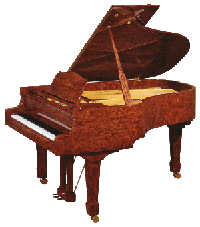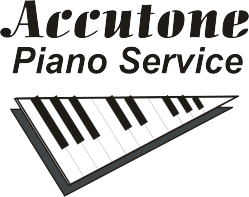The world of pianos is long, wide, and deep. There are hundreds of piano brands made in the last hundred years, some of which are still in good condition. Some pianos made in the last 30 years are already worn out and need repair. Maybe you’re on a tight budget (who isn’t?), and maybe you’re not sure little Suzy or Johnny is going to continue with lessons. You don’t want to spend too much, but where are you going to find that deal that will fill the need but not break the bank?
Sometimes I’m asked about keyboards. Are they a good idea? Are you worried about them putting you out of business? I think a keyboard is a good stepping stone to a piano. They are inexpensive, and can get a new player up and running with little cost. If they decide that lessons aren’t going to work, you aren’t out a lot of money. But, I have found that if they make a little progress, they will ask for the real thing.
Finding that “needle in a haystack” bargain piano for a beginning student doesn’t have to be a daunting task. I’d stay away from the curbside piano. It’s there to be taken for free for a reason. You’ll most likely end up paying more for moving it than it’s worth, and then the repairs needed will put the final cost more than you expected anyway.
Buying from a store can be a good idea, but of course they will not be as cheap as one you could find yourself. Craigslist is chock full of bargain pianos at rock bottom prices. One of the best pianos out there is the Baldwin Acrosonic spinet. It’s a smaller upright piano, and very plentiful. For somewhere between $500 to $1000 you can find one in good shape. They’re like Timex watches. If you just take care of them, they’ll just keep on tickin’ Later, if you want to upgrade, you can sell it for what you paid for it.
Going up from there are the larger upright pianos, with names like Baldwin, Yamaha, Kawai, Mason Hamlin, Chickering and others. They are well built, and should be pretty much trouble free. Don’t forget that this purchase will likely become a family heirloom, and become the “mantel” for your pictures and trophies. Be prepared to splurge, and you won’t regret it.
If you’re unsure about what you’re looking at, take along a teacher or an experienced player to audition the pianos. They will know what to expect in the tone and feel of the keys. The main thing is to have fun looking, and be sure you LOVE the piano before you buy it. Don’t just buy “Brand X” because of the name. The one you love is the one you want.
If you do find that dream piano, be sure to have it checked by your technician before you purchase. You don’t want any surprises when you get it home.
Speaking of moving pianos, always use a professional piano mover. That is, unless you’re prepared to fix a broken and/or scratched piano. If you think you can get a bunch of big college guys to move it, I wish you luck. Yes, you can save some $$$. But is it worth breaking your back or injuring yourself? Let the big boys do what they do best. See my Referrals page for some good moving companies.
So, good luck finding your new piano. Call me if you have any questions..
Paul



